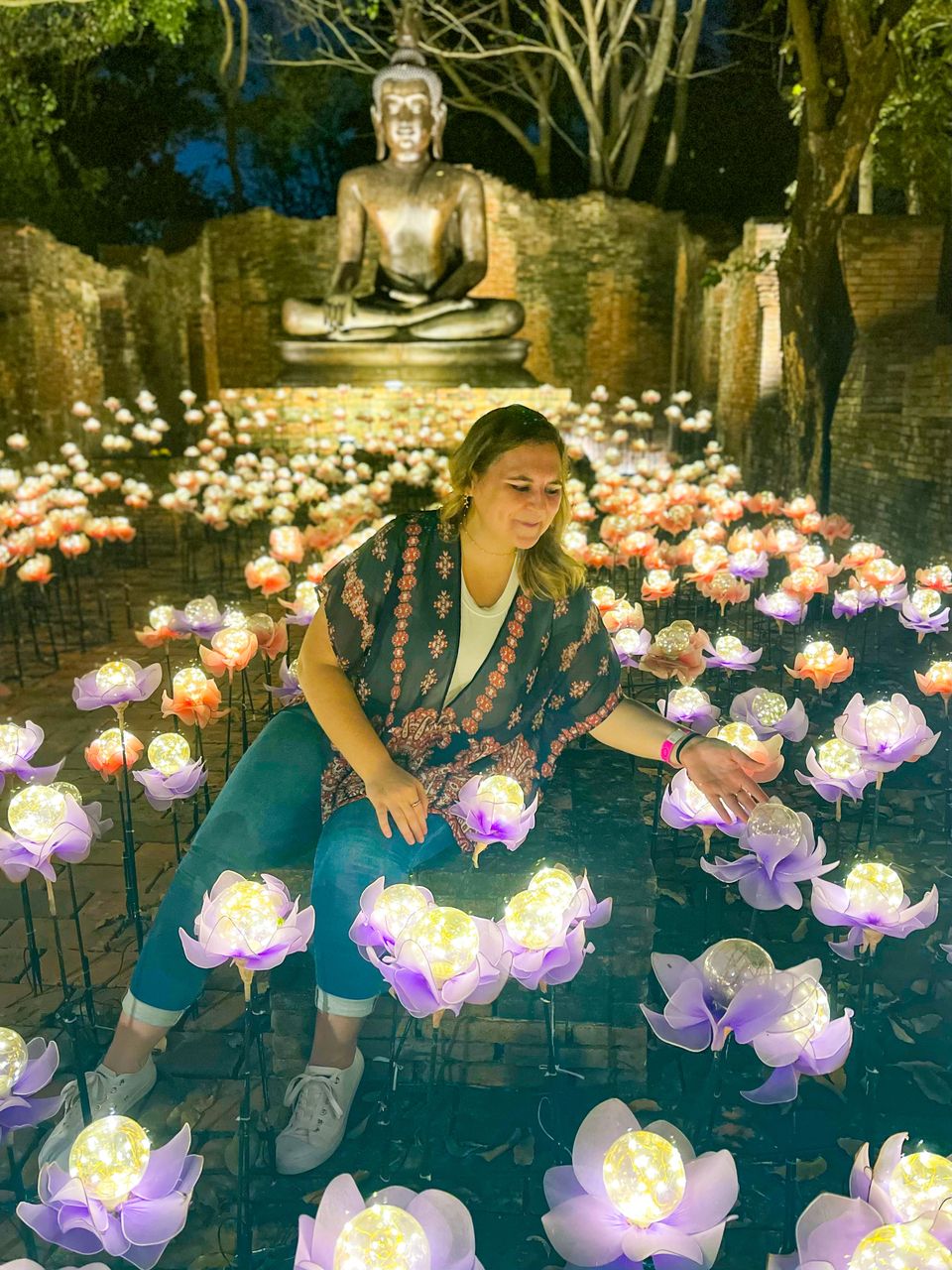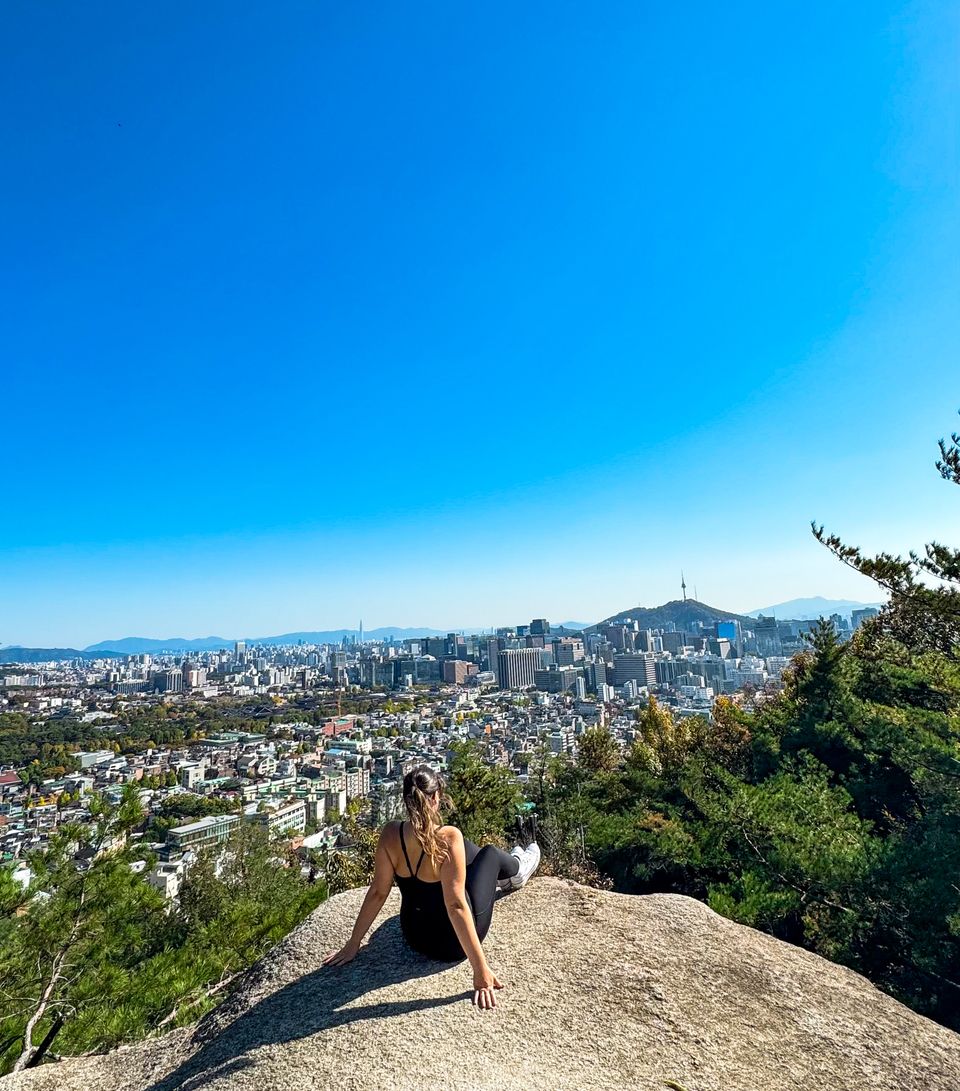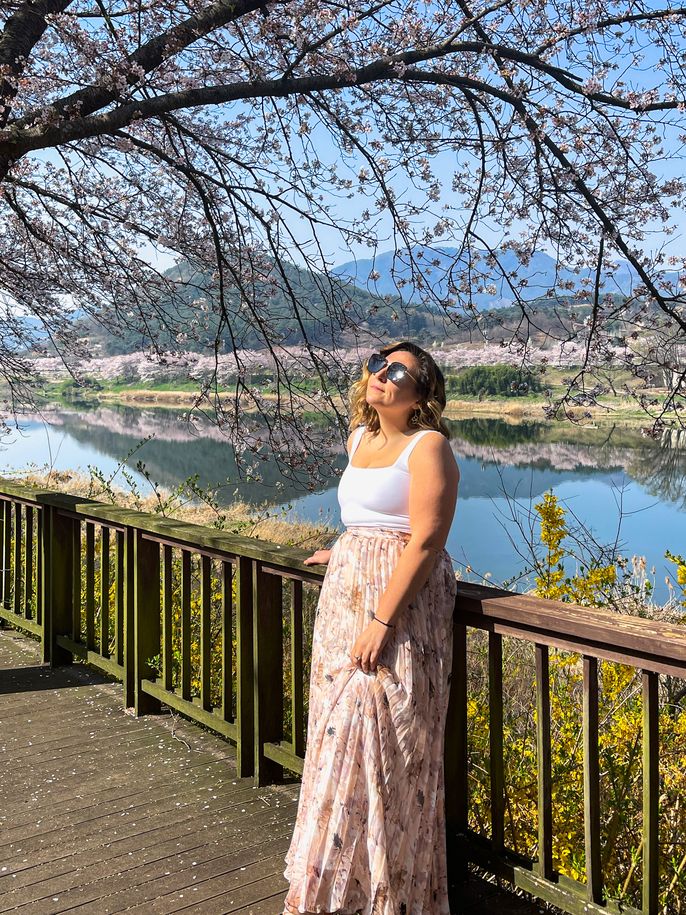Thailand vs. Korea: An Alumni Guide to Teaching English in Asia
Meet Gillian- a CIEE Teach Abroad & TEFL Alum! 😊
Hello, my name is Gillian and I am from Massachusetts. I have always known I wanted to live abroad. I grew up traveling around the United States with my family before going abroad as a student ambassador at sixteen. This experience solidified my goal to see the world and all it has to offer. I found CIEE while looking for programs to study abroad while in university, and before graduating college, I had my sights set on both South Korea and Thailand as places to teach English. I chose South Korea because it offered a competitive salary and benefits package. In order to teach English in South Korea, I needed a TEFL certification, so I signed up for the Spring 2020 program and I was off! After teaching in Korea for a year, I chose to head to Thailand in the spring of 2021. Both of these experiences taught me a myriad of things that have been invaluable both in the classroom and out of it.

What was the single most valuable takeaway or skill you gained from the CIEE 150-hour TEFL course that directly impacted your ability to teach effectively in an international classroom?
Getting TEFL certified has been beneficial on many levels. It has made me a more competitive job applicant, made me more confident in the classroom, but most importantly, it prepared me to teach students of all ages and English levels. There are so many types of students, and it is easy to imagine what it will be like teaching in the classroom, but actually being in front of the students…it is a bit different than you’d imagine. Getting TEFL certified helped me learn from the instructor, my peers, and even my students. I gained the confidence and competence to be an ESL teacher.
Can you describe the differences between the teaching position in Thailand vs South Korea and give insight on the expectations and responsibilities you had in each place?
Teaching in Korea and Thailand were very different experiences for me. In both cases, I was a kindergarten teacher, so I was predominantly teaching four to seven year olds. In Korea, I was the main and lead teacher in the classroom. I had a level of flexibility when it came to time management and activities. In Thailand, I was more of a co-teacher with my Thai counterparts. In Korea, I taught from 11-8pm with kindergarten ending around 2:30 and my afternoon classes with students from ages eight to thirteen going from 3:00-8:00. I had planning periods between classes which allowed me to prepare my lesson and materials and grade books, tests, and writing pieces. In Thailand, I taught from 8-3 pm. My schedule was broken up throughout the day with about 40 minute classes and breaks between to prepare or rest. Every school is different when it comes to expectations both while in the classroom, and preparing outside of the classroom. Korea has a busy schedule, not only academically, but with monthly birthday parties, field trips, activity days, and other contests (singing, writing, and speaking). I had more technology, control, and independence. That being said, Thailand was more relaxed, spontaneous, and flexible. In both cases, being flexible is incredibly important because adjusting to communication levels and classroom expectations is vital to your success.

Outside of teaching, can you give us a snapshot of what living in Thailand and Hungary looks like?
Outside of the classroom is whatever you make of it. You are living alone, or maybe know one other person when you start in a new country, it is truly up to you what you make of that experience. For me, in both Korea and Thailand, the world was dealing with the Pandemic which shaped many of my experiences. While in Korea, I lived close to Seoul which means that English accessibility was quite prevalent. It was easy to navigate the area with the metro and buses. Exploring Korea, and other Asian countries was quite easy because of their incredibly comprehensive and punctual transportation system, all you need is a T-Money card and the Naver app and you are all set! Korea is one of the safest places I have been. People leave their computers open at cafe tables, pick up debit cards and put them out of the way, and even return lost cell phones to police stations. It was a culture shock to see how trusting people were, but also comforting knowing how safe I was. It was incredibly easy to both pick up hobbies and activities that I had in the U.S., while also exploring new experiences and doing as the locals do like picnicking at the Han River, catching a baseball game, or cafe hopping around the different districts in Seoul.
Thailand on the other hand enjoyed the mai pen rai mentality. It is known as the Land of Smiles, and it certainly lives up to that name. Although I wasn’t able to travel outside of Thailand while I was there, I traveled as much as I could within the country itself. I had to learn to go with the flow and enjoy the ride. The biggest adjustment for me was definitely budgeting. Going from Korea where I was saving a good amount of money to Thailand where I was making about half the amount I was in Korea was a test in restraint. I wanted to do everything that I could but with about $800 a month while paying for utilities, laundry, a phone plan, food, transportation, and experiences. I was able to use my ample vacation time to sit on the beach in Phuket, explore the temples in Chiang Mai and Chiang Rai, and experience many of the main tourist attractions without many tourists.
As a vegan, I would also like to highlight the food option in both countries. I have never let my dietary restriction stand in my way when it comes to living abroad. Both Korea and Thailand have a variety of options, restaurants, and alternatives because of both the Buddhist religion and growing demand from locals and tourists. I will say that it is certainly easier to find options in major cities, but you can also customize popular traditional foods like gimbap and bibimbap in Korea and pad see ew and other stir fry dishes in Thailand. Learning the local languages, or at least learning key phrases will be immensely helpful when ordering, clarifying, or reading food labels.

Overall, how would you characterize the differences in your experience between a CIEE Teach Abroad program (Thailand) vs. a CIEE TEFL Job Placement Assistance Opportunity (Hungary)?
Again my experience with both programs is slightly different because of the Pandemic. While getting ready to leave for Korea, I had a great experience with both CIEE and the people they partner with in Korea. They helped me prepare my documents, double checked everything before sending it to immigration, kept me informed, and helped prepare me as much as possible. They gave me advice for the interview process, what to pack, and even coordinated the airport pick up. While I was in Korea and everything shut down, they did inform us about how the pandemic would affect our previously planned excursions and meet-ups, but they were still somewhat available to help in a limited capacity with questions and concerns. However, my experience was a bit better while I was transitioning to Thailand. Both CIEE and their partner company OEG were very helpful with navigating the ever changing pandemic guidelines and visa requirements. They kept me up to date on every changing front and they were always available to answer questions. They coordinated airport pick-up, hotel stays, a two-week online orientation which kept me from going stir crazy during quarantine, and even a pandemic friendly post quarantine excursion where we could meet and hang out with other people who were also teaching for the next year in Thailand, This was definitely a highlight because it helped me connect with other people to meet up with throughout the year I taught in Thailand.
If you could give one piece of advice to someone considering taking the CIEE TEFL course and teaching in Thailand or Hungary through our program, what would it be and why?
My best piece of advice is to consider what you are hoping to gain from this experience. Are you hoping to travel and explore? Are you hoping to gain experience? Do you want to immerse yourself in another culture? Do you want to build a diverse resume? Save money? For me, I wanted financial security while gaining experience that could help me secure job prospects even after leaving the current CIEE program I was aligned with. Getting TEFL certified and using CIEE started me on the right path, it was then up to me to choose the right program for myself. People choose to teach abroad for a wide variety of reasons, but it is also important to remember that you are signing on for a job as well, and that is the main reason you are there. So choosing a program that provides the flexibility to either be a lead teacher, make decent money, but have less vacation time or have more vacation time, hotter weather, and more of a relaxed approach is up to you and your ultimate goals. Most importantly, enjoy the ride! It will change you in the best ways!

What’s next for you after this experience teaching abroad?
I’m certainly not done living abroad! After teaching in Asia for the better part of five years, I have decided to use the CIEE resources and partnerships to teach in Hungary. I am incredibly excited about this next step! I am excited to see how it compares to teaching in Asia, but mostly I am excited to be in Europe and experience all it has to offer!

